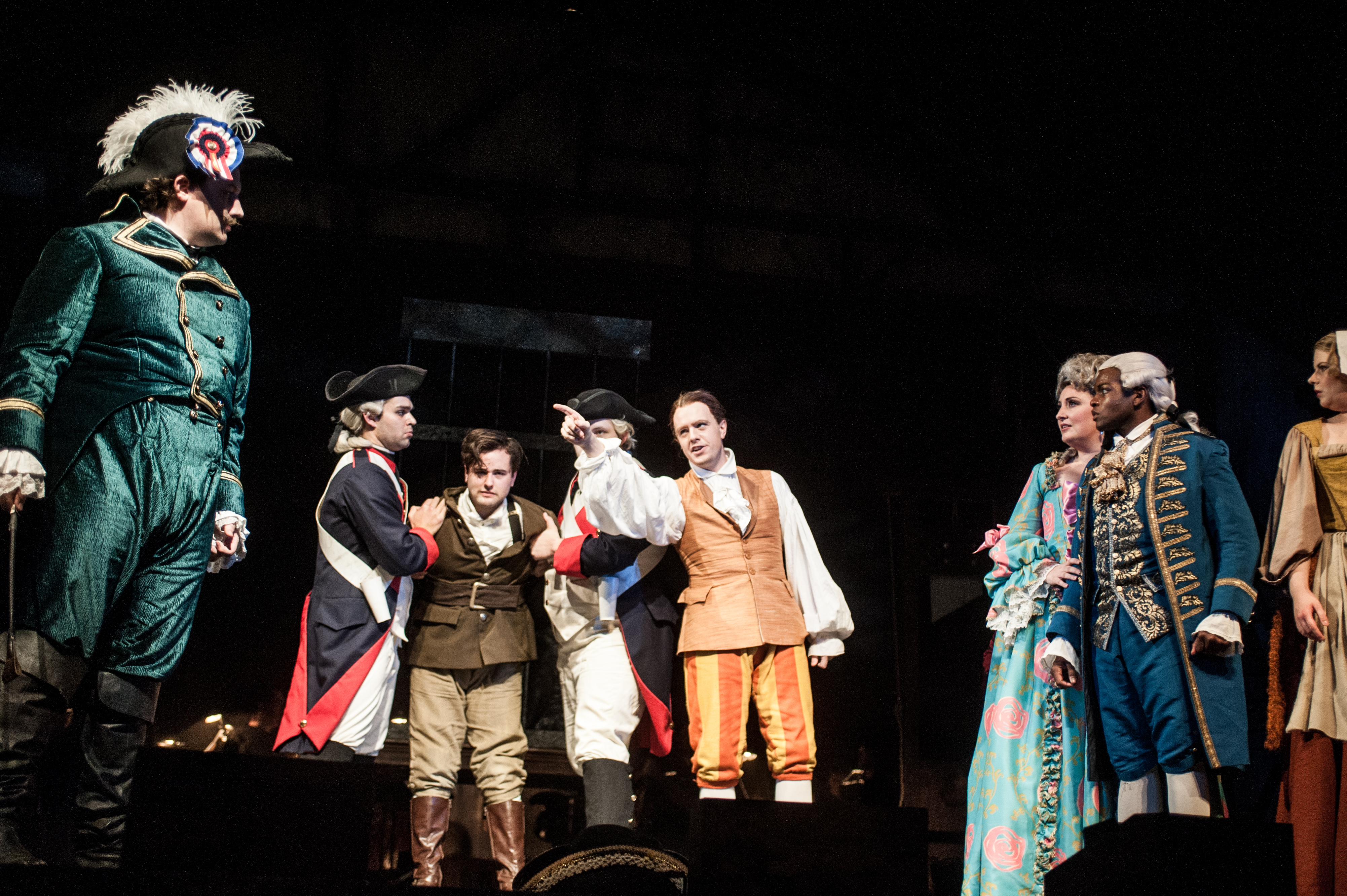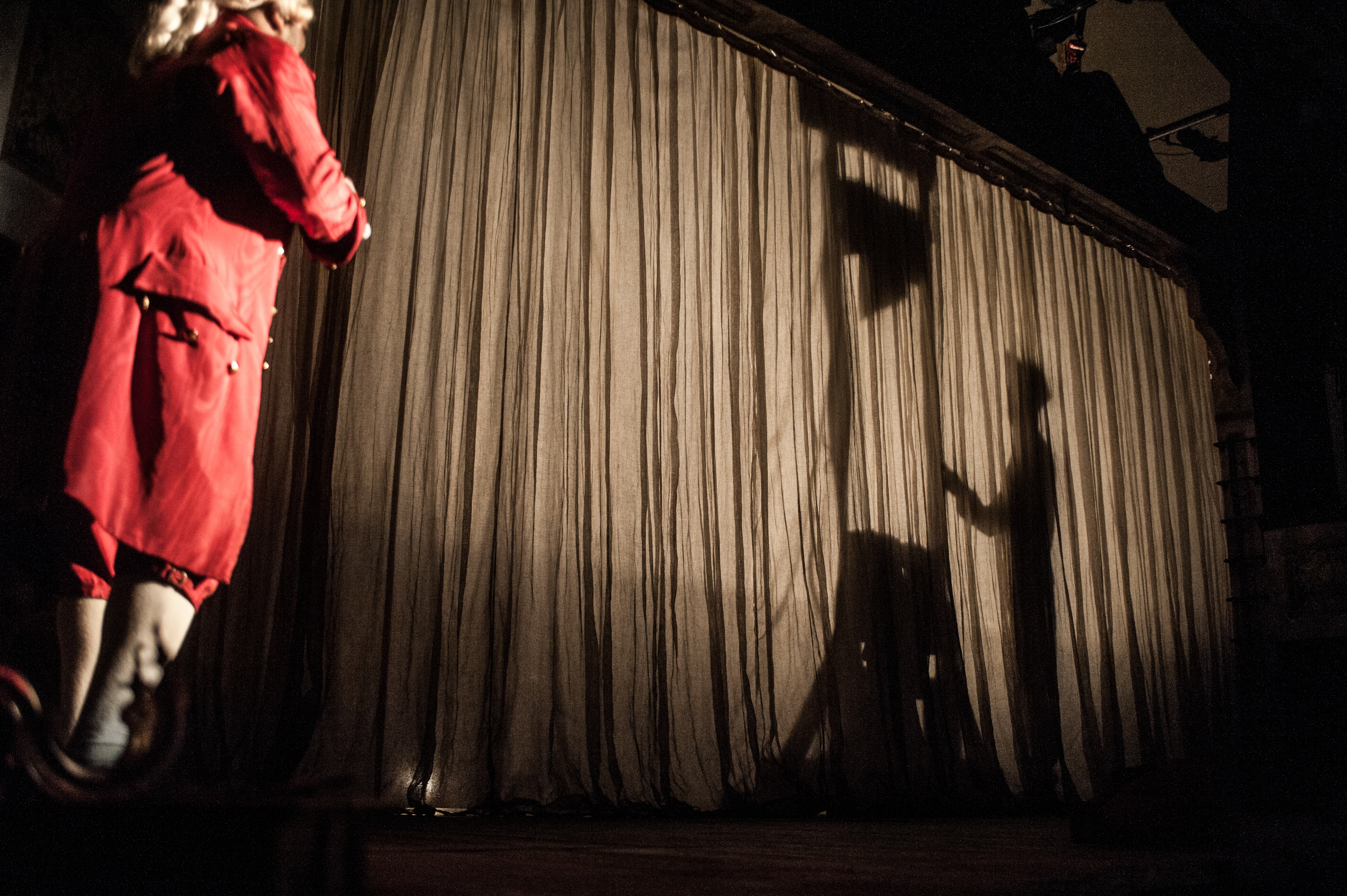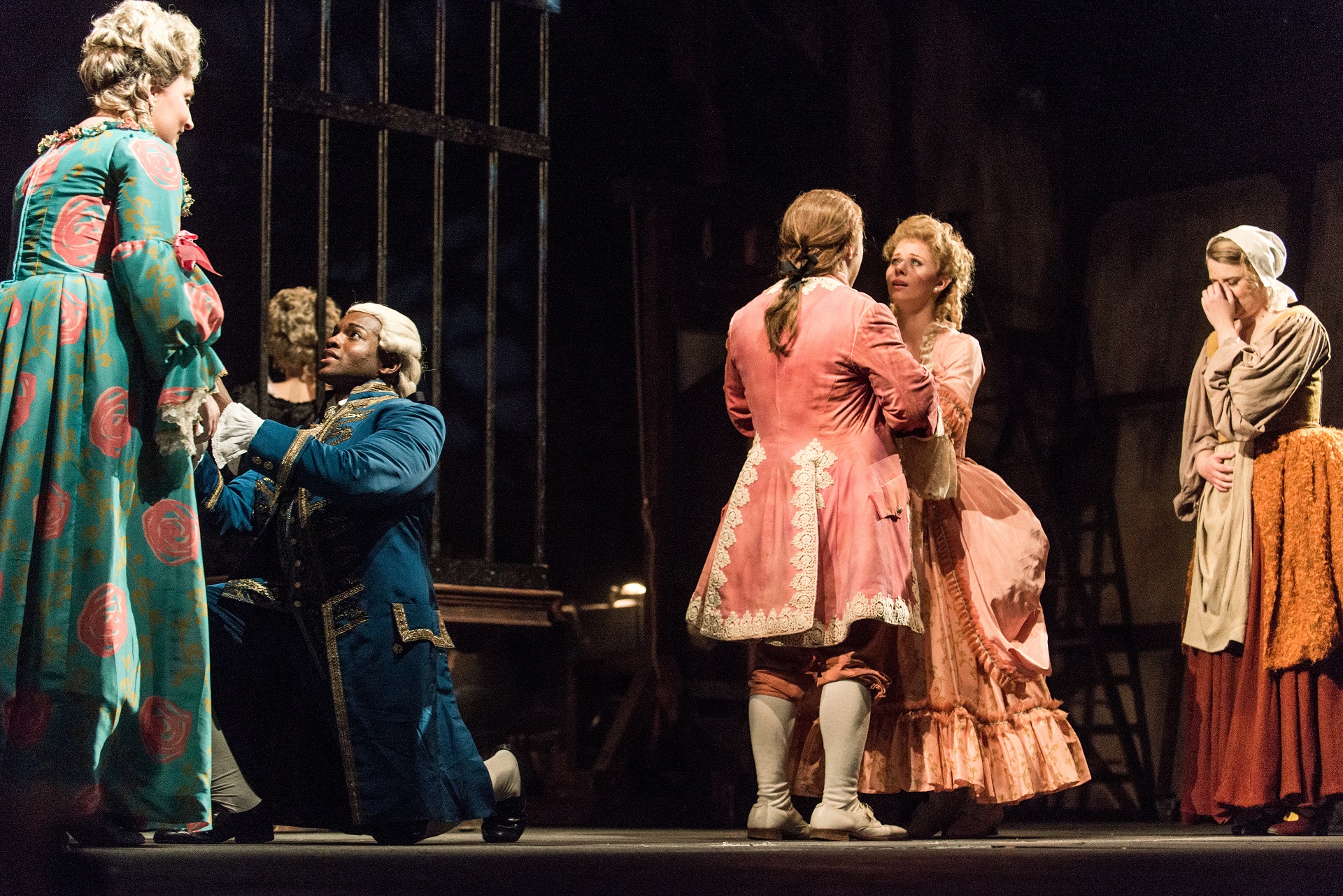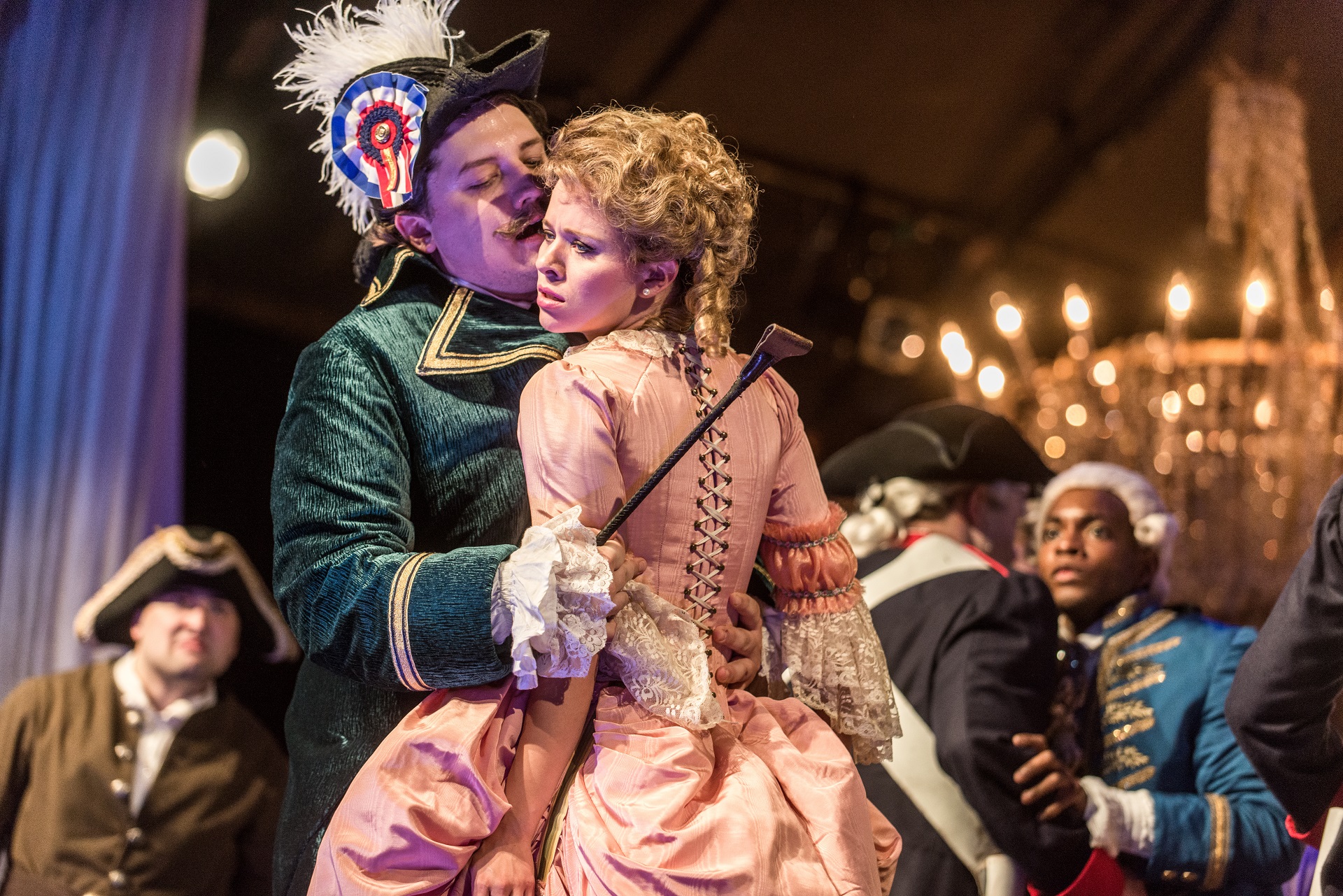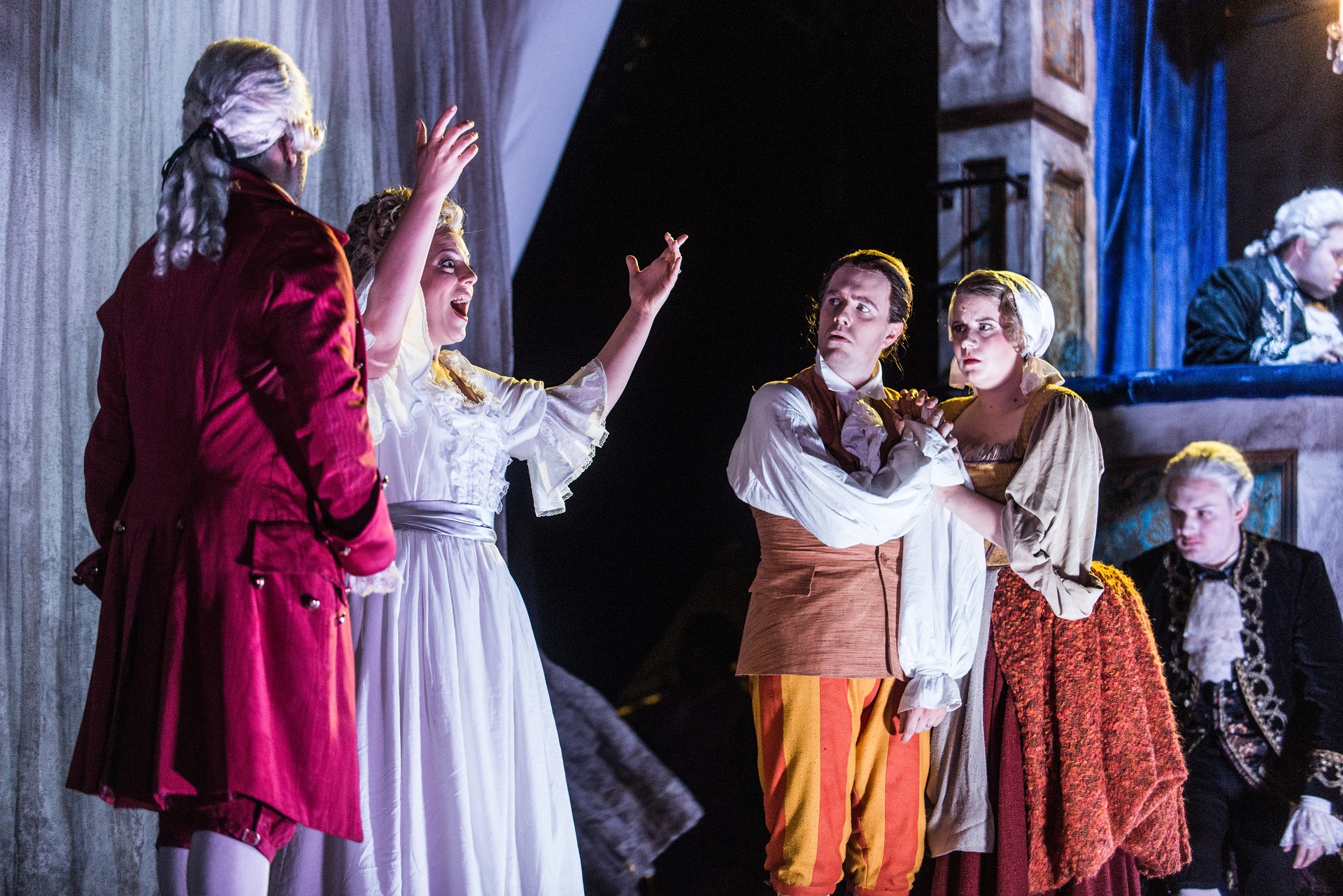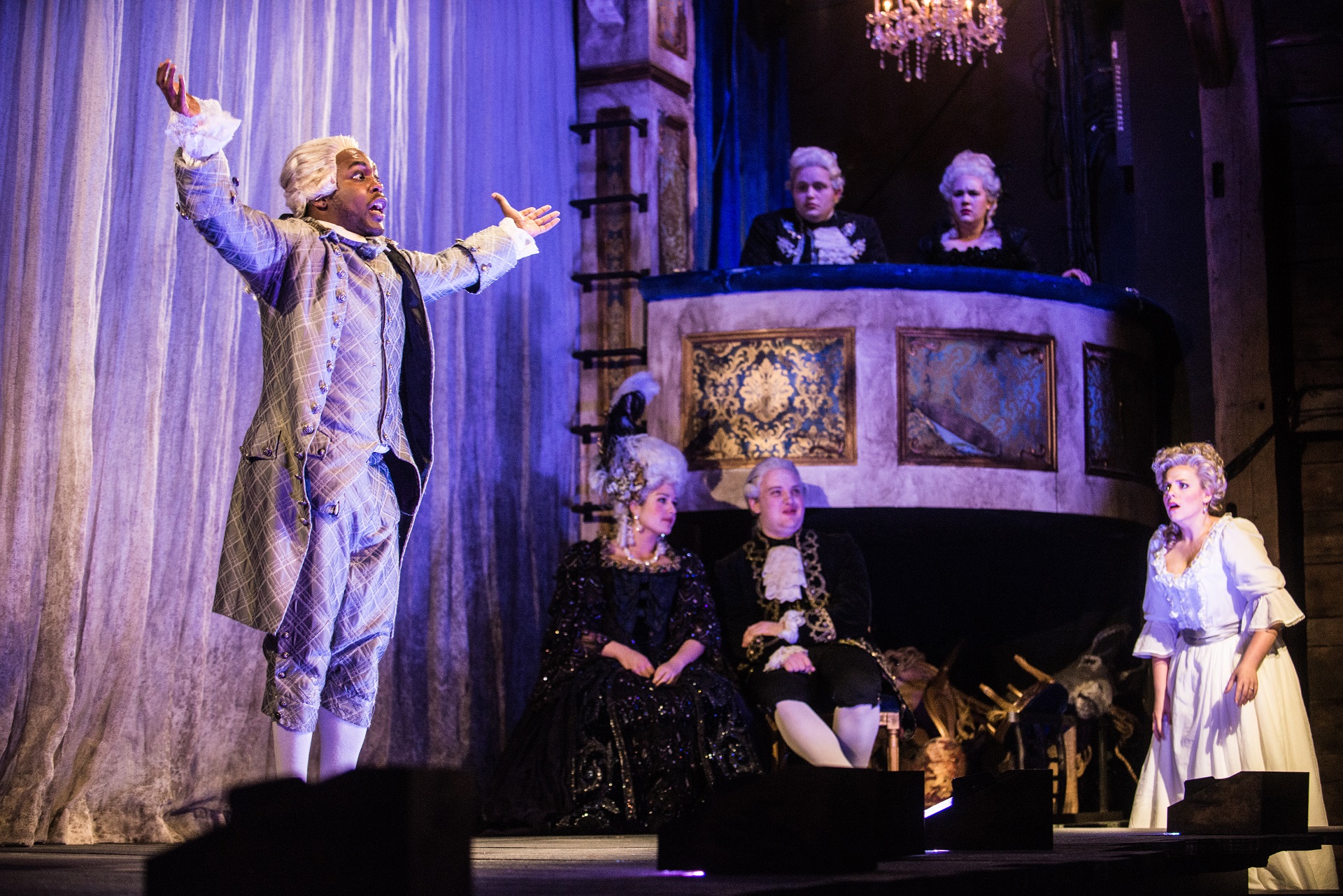Ghosts of Versailles, The
July 10, 2017 July 12, 2015 July 15, 2015 July 18, 2015
Cast
- Marie Antoinette - Melinda Whittington, soprano
- Beaumarchais - Will Liverman, baritone
- Figaro - Morgan Pearse, baritone
- Susanna - Sarah Larsen, mezzo soprano
- Rosina - D'Ana Lombard, soprano
- Count Almaviva - Frederick Ballentine, tenor
- Bègearss - Robert Watson, tenor
- Samira - Jenni Bank, mezzo soprano
- Louis XVI - Timothy Bruno, bass
- Florestine - Amy Owens, soprano
- Lèon - David Margulis, tenor
- Cherubino - Abigail Levis, mezzo soprano
Wilhelm – Joshua Sanders (Studio Artist)
Woman with Hat – Nadia Fayad (Studio Artist)
Marquis – Ian Koziara (Studio Artist)
Sulyman Pasha – W. Clay Thompson (Studio Artist)
English Ambassador – Brandon Bell (Studio Artist)
Gossips and Jaded Aristocrats at the Opera – Wolf Trap Company
CREATIVE TEAM
Conductor – Eric Melear
Director – Louisa Muller
Scenic Design – Wilson Chin
Costume Design – David Woolard
Lighting Design – Robert H. Grimes
Wigs & Makeup – Anne Nesmith
Associate Scenic Design – A. Ram Kim
Assistant Wig & Makeup Design – Melissa Thiede
MUSIC & PRODUCTION STAFF
Musical Preparation – David Hanlon, Emily Senturia, Peter Walsh
Chorus master – David Hanlon
Supertitles – Edward Kim
Production Stage Manager – Courtney Rizzo
Assistant Stage Manager – Madeline Levy
Stage Management Intern – Evelyn Rossow
Directing Intern – Lynda Paul
THE STORY
Act I – The ghosts of the court of Louis XVI arrive at the theater of Versailles. Bored and listless, even the King is uninterested when Beaumarchais arrives and declares his love for the Queen. As Marie Antoinette is too haunted by her execution to reciprocate his love, Beaumarchais announces his intention to change her fate through the plot of his new opera: A Figaro for Antonia.
The cast of the opera-within-the-opera is introduced. Following the familiar escapades of the Figaro characters, Count Almaviva has become estranged from the Countess, who has borne a son, Léon, with Cherubino. Léon wants to marry Florestine, Almaviva’s own illegitimate child, but the Count has forbidden the union as retribution for his wife’s infidelity and has promised Florestine instead to Bégearss.
Figaro enrages the Count by warning him that his trusted Bégearss is in fact a revolutionary spy. Figaro is fired, but overhears Bégearss and his servant Wilhelm hatching a plot to arrest the Count that evening at the Turkish embassy when he sells the Queen’s necklace to the English ambassador. Figaro intercepts the plot by infiltrating the party, dressed as a dancing girl. During the outrageous performance of the Turkish singer Samira, Figaro steals the necklace from the Count before the sale can take place, and runs away.
Act II – Figaro returns only to defy Beaumarchais’ intention that he return the necklace to the Queen, as he wants to sell it to help the Almavivas escape. To put the story back on course, Beaumarchais enters the opera and shocks Figaro into submission by allowing him to witness the unfair trial of Marie Antoinette.
The Count, swayed by his wife’s wishes, rescinds his offer to Bégearss of his daughter’s hand. Even though Figaro gives him the necklace, Bégearss is enraged and sends the Spaniards to the prison where Marie Antoinette lingers.
Beaumarchais and Figaro, the only two to escape, arrive at the prison to try to rescue the Almavivas. They are shortly followed by Bégearss whom Figaro denounces to the revolutionaries, revealing that he has kept the necklace rather than using it to feed the poor. Bégearss is carried off, the Almavivas escape to America and Beaumarchais is left with the keys to the Queen’s cell. But the power of his love has made the Queen accept her fate and she refuses to let Beaumarchais alter the course of history.
